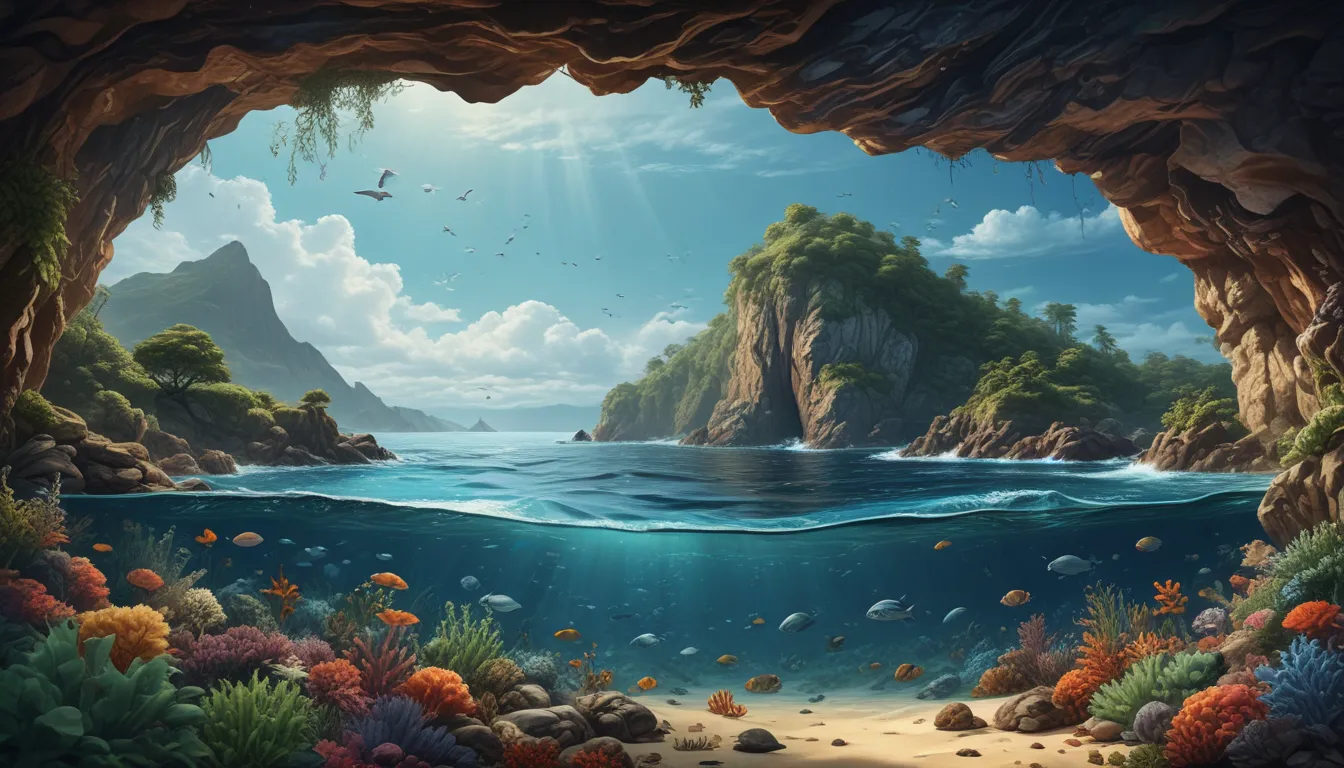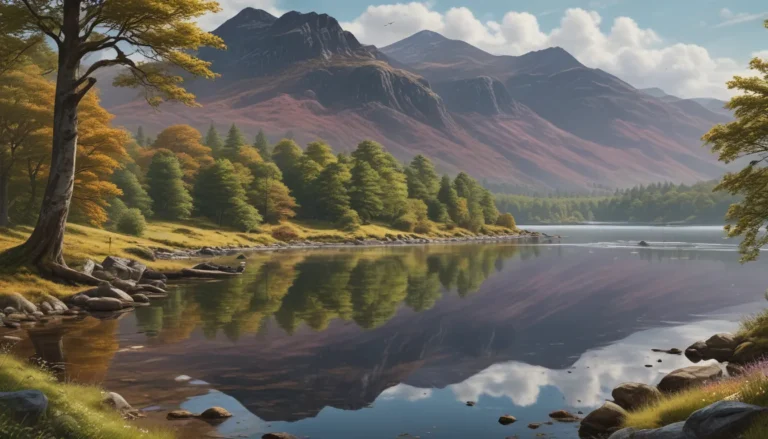The pictures we use in our articles might not show exactly what the words say. We choose these pictures to make you interested in reading more. The pictures work together with the words but don’t take their place. The words still tell you the important facts.
Have you ever gazed out at the vastness of the ocean and felt a sense of wonder and awe? The ocean is a remarkable ecosystem that covers more than 70% of our planet's surface, teeming with life and playing a vital role in regulating our climate. From the mysterious depths to the shimmering surface, the ocean holds a wealth of wonders and secrets waiting to be discovered.
Discovering the Marvels of the Ocean
The ocean is a complex and interconnected ecosystem that supports an incredible variety of life forms. From microscopic plankton to massive whales, the ocean is home to a vast array of biodiversity that is still largely unexplored. Its diverse habitats, including coral reefs, deep-sea trenches, and coastal wetlands, provide homes for countless species.
Have you ever wondered where most of the oxygen we breathe comes from? The answer lies in the ocean. Phytoplankton, tiny marine plants, produce over half of the Earth's oxygen through photosynthesis. They play a crucial role in regulating the planet's climate and maintaining the balance of life on Earth.
Delving into the Depths of Knowledge
The Great Barrier Reef, located off the coast of Australia, is the world's largest living structure. Stretching over 2,300 kilometers, it is composed of billions of coral polyps that have built upon each other for thousands of years. This vibrant ecosystem is a UNESCO World Heritage site and supports a staggering array of marine life.
The Mariana Trench, located in the western Pacific Ocean, is the deepest part of the world's oceans. Descending to a depth of approximately 36,070 feet, this abyss is home to unique and otherworldly creatures adapted to the extreme conditions of the deep sea.
Unveiling the Majesty of the Ocean
The sheer vastness of the ocean is awe-inspiring. It spans approximately 361 million square kilometers, accounting for about 71% of the Earth's surface. Despite its enormity, only around 5% of the ocean has been explored, leaving much of its mysteries and wonders yet to be discovered.
The ocean acts as a giant heat sink, absorbing and distributing heat around the globe. It plays a vital role in regulating Earth's climate and weather patterns, influencing everything from temperature fluctuations to precipitation rates. The ocean also absorbs a significant amount of carbon dioxide, helping to mitigate the effects of climate change.
Preserving the Ocean’s Future
Despite its beauty and importance, the ocean faces threats from human activities, such as pollution and overfishing. It's crucial to prioritize conservation efforts to protect this precious resource. By being more conscious of our consumption habits, supporting sustainable fishing practices, and reducing our carbon footprint, we can contribute to the preservation of the ocean for future generations.
As we delve into the wonders of the ocean, we are reminded of its immense importance to the planet and all living beings. The ocean offers a sense of serenity and well-being to countless individuals and continues to inspire awe with its vastness and diversity. Let us all work together to ensure the long-term health and vitality of our oceans, preserving this invaluable resource for generations to come.
FAQs
Q: What is the largest ocean in the world?
A: The largest ocean in the world is the Pacific Ocean, covering more than 63 million square miles.
Q: What is the deepest part of the ocean?
A: The Mariana Trench in the western Pacific Ocean is the deepest part of the ocean, reaching a depth of over 36,000 feet.
Q: How much of the Earth's surface is covered by the ocean?
A: Approximately 71% of the Earth's surface is covered by the ocean.
Q: What is the importance of the ocean to the climate?
A: The ocean plays a vital role in regulating the Earth's climate by absorbing and storing large amounts of heat and carbon dioxide.
Q: How many species live in the ocean?
A: It is estimated that there are over one million species living in the ocean, with countless others yet to be discovered.
Q: Are there freshwater bodies within the ocean?
A: Yes, there are bodies of freshwater within the ocean, such as estuaries, where rivers meet the sea, creating a brackish water environment.
Q: How does the ocean contribute to the economy?
A: The ocean contributes to the economy through fisheries, tourism, shipping, and the extraction of resources such as oil and gas.
Q: Are there any underwater forests in the ocean?
A: Yes, there are underwater forests called kelp forests, which provide a habitat for many marine species and play a crucial role in the ecosystem.
Q: How deep can some ocean creatures live?
A: Some ocean creatures, like the sperm whale, can dive to depths of up to 3,280 feet in search of food.
Let us continue to explore, learn, and protect this vast and magnificent ecosystem that is the ocean. Together, we can make a difference and ensure a sustainable future for this invaluable resource.






